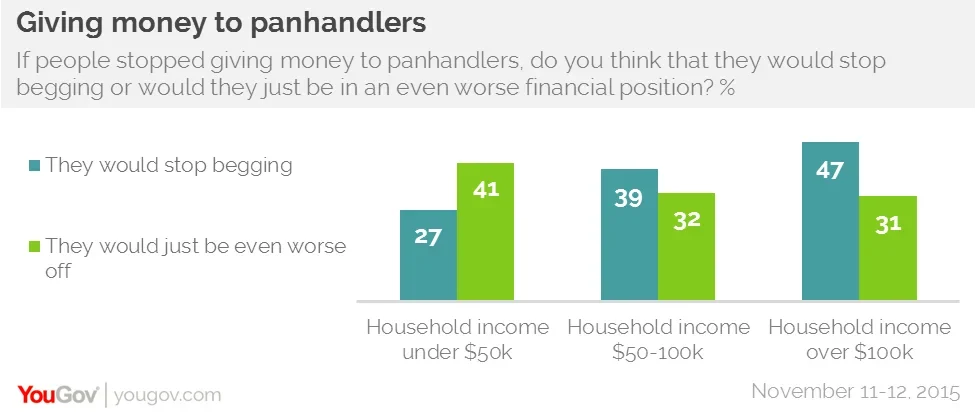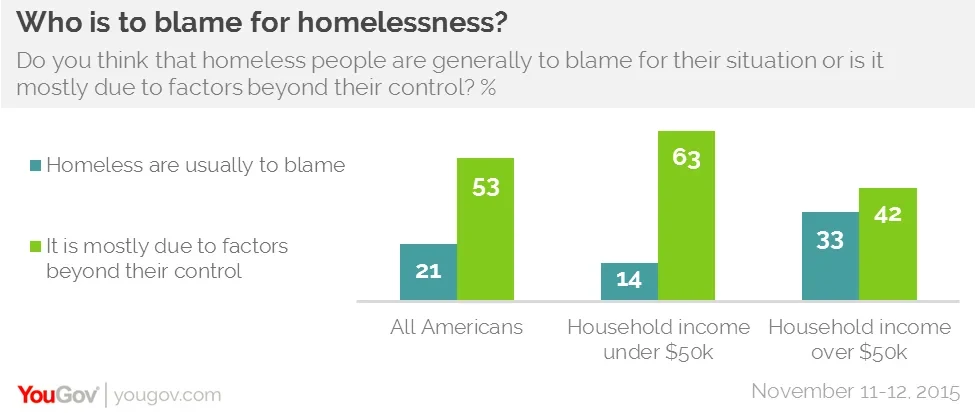Richer Americans tend to agree that beggars would stop begging if people just didn't give them money
Bill Bratton, the Commissioner of the NYPD, caused a certain amount of controversy last week for saying that the growing problem of panhandling in New York City could easily be solved if people just stopped giving money to the homeless. Homelessness has been falling nationally, but in New York homelessness has been increasing in recent years as rapidly rising rents and an exploding heroin problem push families and addicts onto the streets. Homeless advocates and many local politicians slammed Bratton's comments, saying that if people stopped giving money to the homeless it would only make people living on the streets even more desperate.
Research from YouGov shows that Americans are divided on whether or not it would actually stop begging if people just stopped giving money to panhandlers. 32% say that it would stop people begging while 37% say that the homeless would just be worse off and another 31% aren't sure either way. Wealthier Americans are much more likely to say that people would just stop begging if we all stopped giving money, with 47% of people in households with an annual income over $100,000 saying that compared to only 27% of people in households with incomes under $50,000.

A similar though less dramatic divide exists between rich and poor America on whether or not homeless people are usually to blame for their predicament. Most Americans (53%) say that homeless people are largely homeless due to factors beyond their control, while only 21% say that homeless people themselves are usually to blame. A third of the wealthiest Americans, however, believe that homelessness is generally a result of personal failure and they are the only group in which most people don't think that homelessness is largely a result of external factors.










